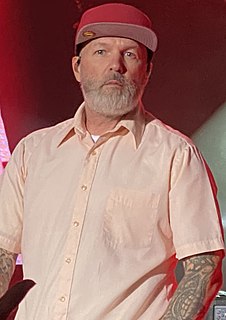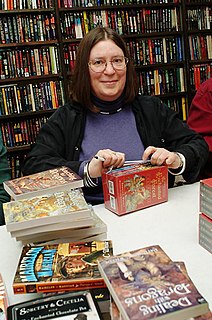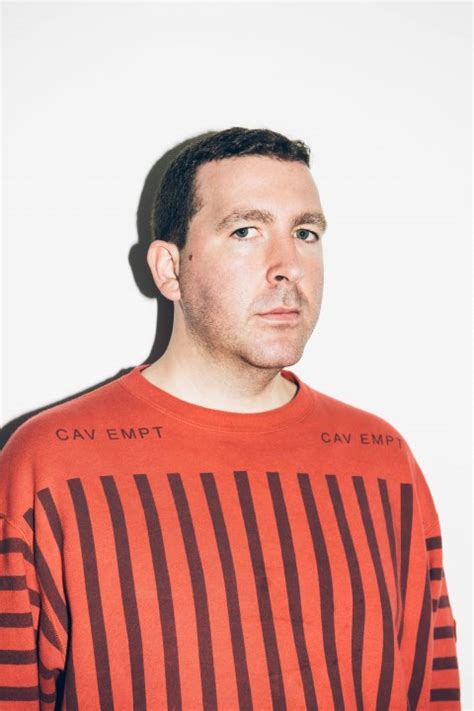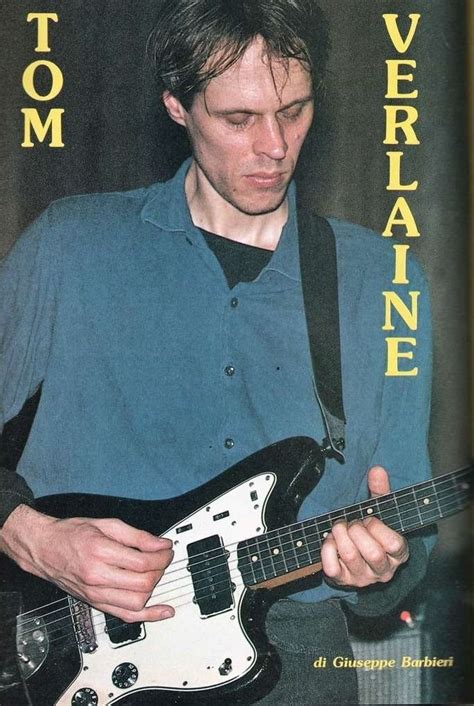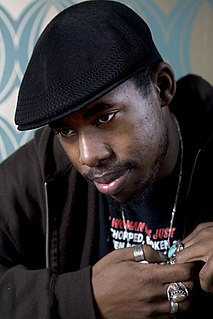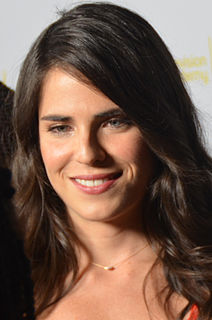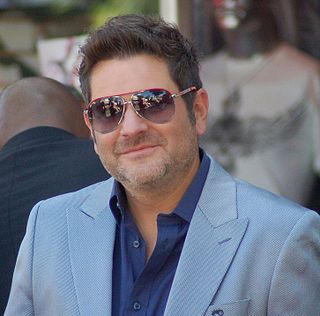A Quote by Moby
I think that the current climate enables a lot of musicians to do relatively well. Twenty-five years ago, you could be a bass player in a folk-rock band and do pretty well - that sort of means that you're going to have to go get a day job. But a lot of my friends have learned how to write classical music for movies and produce other people and do remixes, and DJ and go on tour, and do all these different things. The more diverse their approach, the better their chances of actually having a career.
Quote Topics
Actually
Approach
Band
Bass
Bass Player
Better
Career
Chances
Classical
Classical Music
Climate
Could
Current
Day
Day Job
Different
Different Thing
Different Things
Diverse
Enables
Five
Five Years
Folk
Friends
Get
Go
Going
Having
How
Job
Learned
Lot
Means
More
Movies
Music
Musicians
My Friends
Other
People
Player
Pretty
Produce
Relatively
Rock
Rock Band
Sort
Things
Think
Tour
Twenty
Twenty-Five
Well
Write
Years
Years Ago
Related Quotes
Being a classical musician I'm fascinated with how my colleagues, not just singers, but every musician finds ways to express something else or something new or the same ol', same ol' in classical music. I'm always in dialogue with other musicians at least orally, if I can't be with them and a lot of dead musicians as well. I've learned a lot from dead people on recordings.
I loved getting my M. B. A., and I really enjoyed being an accountant and financial analyst before I quit my day job twenty-five years ago to write full time. I just liked writing more…plus, I knew even then that as a full-time writer, I'd get plenty of chances to do business-type stuff, while as an accountant, I probably wouldn't get a lot of opportunities to write about dragons.
Right now, I don't particularly take different CDs or vinyl - I have my CD wallet that I take everywhere I go; there are different things in there that cater to different kinds of times - but if there's a special DJ thing coming up, I might go through my records and pick out this special selection. It's one the things that means you're improving as a DJ the more you do it, understanding what's going to go down well in a specific place.
I write a lot of more instrumental music than I do vocal music. It's because I come out of a background of playing piano and then playing sax for a number of years. I kind of got into rock backwards. A lot of guys go into rock and then get sick of it and then go into something else. I came the other way, so I've always just had a lot more stuff lying around.
Twenty to thirty years ago, who was making documentary films? Nobody. Well, relatively few people. It was an art form that had limited theatrical distribution, if any at all. Some television distribution, but relatively small audiences regardless. And in the intervening years it's become more and more popular with a lot of people.
Music's totally eclectic now. I saw a DJ the other day, he was on Virgin radio over here, and he said he played "Going Underground", the Jam song, on his breakfast show. Then he got a text from some young kid asking if was a new band. I think a lot of people these days, younger people as well, are aware of all sorts of music, really. If you're into the Libertines you probably also have to be aware of the Beatles, or the Kinks. I think there's a better, possibly greater appreciation for all music, of all eras, I think.
My all time favorite band is Paramore and she's basically one of the reasons I was inspired... umm, well Hayley Williams from Paramore was one of the basic reasons I wanted to go rock. I saw the band live and they're great together and they write incredible music and also I like a lot of older bands. I like Motley Crue a lot and who else, I've got a lot of favorite bands but those are pretty much the main ones.
I think it's not an easy task because there's not enough Latino writers that are being given opportunities to write things - and I say this because I've been given a lot of bilingual movies in the past because of my career in Mexico, and they're like, "Oh, it's going to make sense for her to do this." A lot of studios want to hit that demographic, but they sort of do it without starting in the right way, which is having someone who knows the culture, and enjoys the language as well, to be able to write these things.
I'm 13 to 17, 18 years old; I thought that's what the world was like. It never occurred to me that this was a very unusual period in music history. So I went on assuming that one day I'm going to have my band like my heroes had their own band. So people ask me this question all the time - they go, "Bass is basically a background instrument." The other thing is that in urban music, Black music, the bass has a much higher profile.
When I'm representing my music live I think of it very much in a rock band sense. When I first started doing festivals in the 90s there really weren't other DJs playing the stages I was playing. So I felt I was being afforded an opportunity to kind of make a statement about what DJ music can be live. In the 90s, if you were a DJ you were in the dance tent, and you were playing house music and techno music. There was no such thing as a DJ - a solo DJ - on a stage, after a rock band and before another rock band: that just didn't happen.
A lot of people still don't realize that, before Rascal Flatts, I was in a Christian band for four or five years, and I had the opportunity to work with some of the greatest pop musicians and producers in L.A. I learned a lot from Peter Wolf; he was one of my heroes growing up in the '80s. He was a producer of a lot legendary pop music.
Someone has to really like you to go out there and physically get your CD. Shout out to everybody who actually paid for the CD. A lot of people don't realize that's how we live, that's our job. When we people take music from us, that's just like taking food off of our table and it's not cool. It's a lot of blood, sweat and tears that goes into the music and those lyrics. To have people just go and steal it, it doesn't feel well.


